Evidence to recommendation
in one platform
Develop trustworthy guidelines, save time, and ensure transparency, all with one platform.
Get started
JOIN OVER 150,000 USERS WORLDWIDE











Challenges we solve
Guideline development can be costly and time consuming to collaborate across dispersed teams, platforms & documents.
Organizations often lack structured and transparent evidence-to-recommendation workflows.
Disseminating guidelines across various digital systems and user contexts can be difficult.
What’s in it for you?
What’s in it
for you?
Less manual work,
more automation
Researchers can seamlessly import systematic review data into GRADEpro from tools like Cochrane’s RevMan. The software automatically generates evidence tables and calculations, carrying the results through to the Evidence-to-Decision Framework and recommendations. This eliminates duplicate work, reduces the need to manage multiple files, and removes manual data transfers, while accelerating evidence synthesis.
Standardized transparent assessments
Built-in tools for rating certainty of evidence (risk of bias, inconsistency, indirectness, imprecision, publication bias) ensure structured, reproducible assessments. This consistency strengthens the credibility of results and minimizes errors.
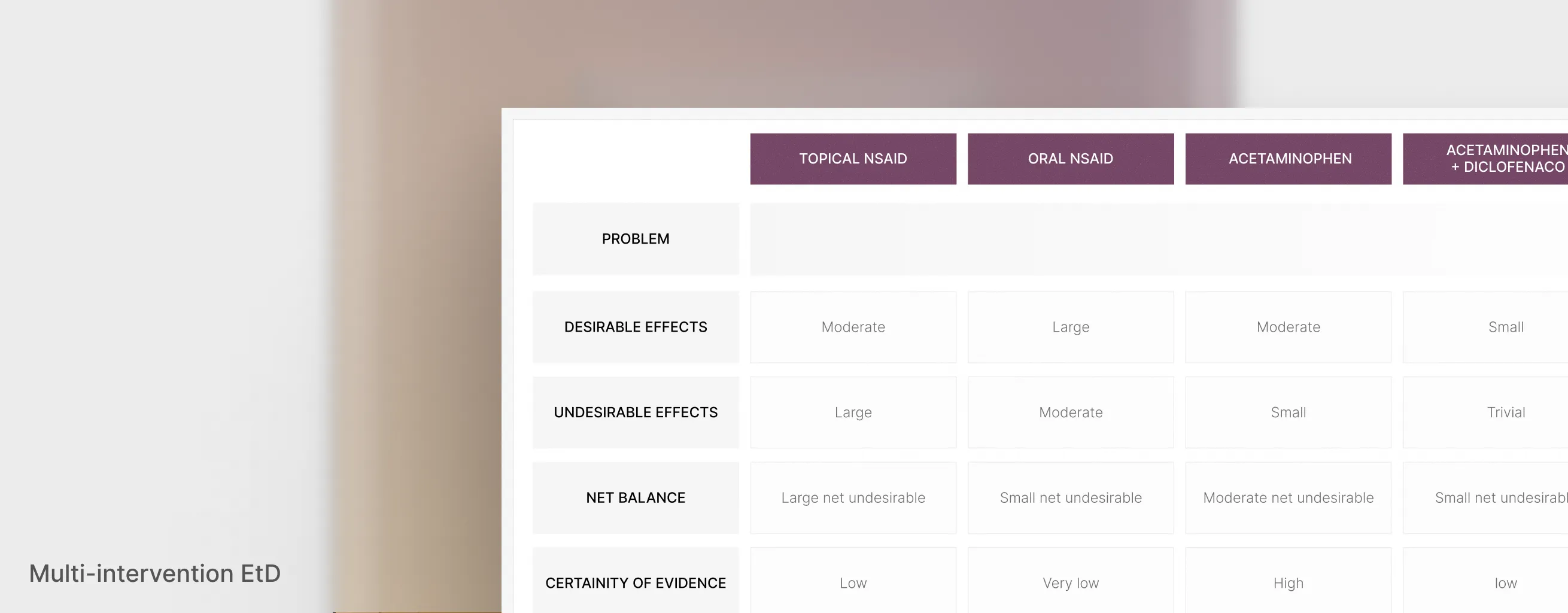
Work regardless of
internet disruptions
With GRADEpro’s Offline Mode, researchers can continue entering data and working on projects even without an internet connection, with all changes syncing automatically once back online.
Efficient collaboration with experts & panelists
Instead of exchanging files by email, researchers can work in a shared platform, where panelists review evidence and interact via surveys, votes, and comments. Built-in tools highlight disagreements and guide the group through iterative rounds toward consensus.
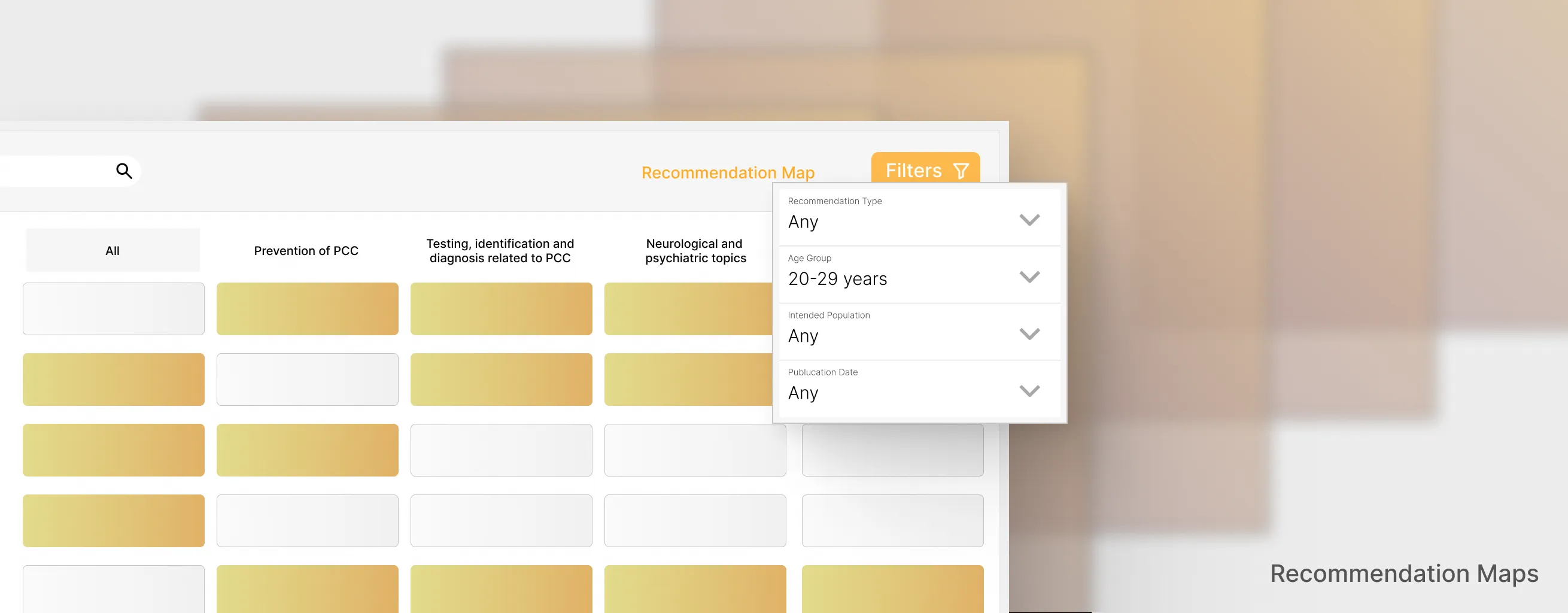
High-Impact
dissemination of results
GRADEpro transforms research outputs into publication-ready tables, interactive guideline formats, and visual recommendations (e.g., Recommendation Maps, Visual Clinical Guidelines). For a Researcher, this means their work doesn’t stay hidden in spreadsheets but is made accessible and useful to clinicians, policymakers, and patients.
Central oversight
of projects
Supervisors can view all guideline projects in one platform, track progress, and ensure that timelines and deliverables stay on schedule without relying on scattered updates.
Standardized process
across teams
By configuring the software to adhere to a defined methodology, GRADEpro ensures that every team follows a consistent, structured approach to evidence appraisal and recommendation development, enhancing reliability across projects.
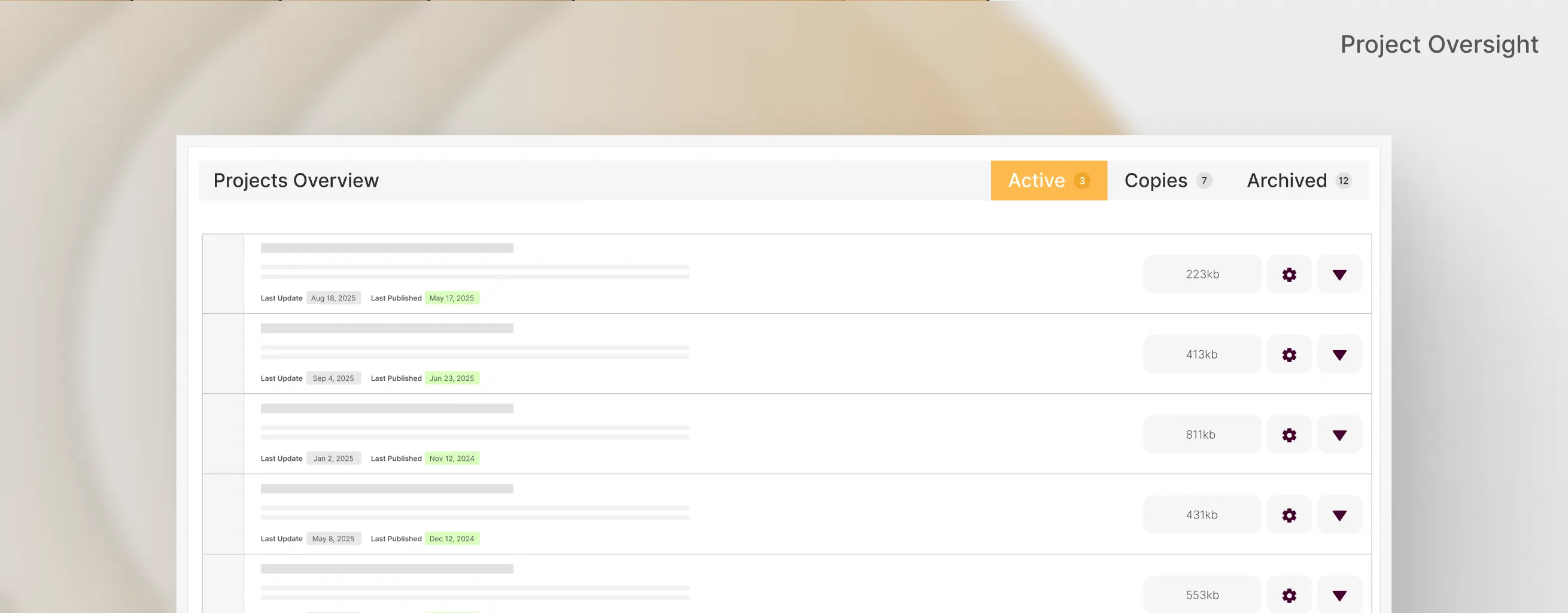
Transparent conflict of interest management
Supervisors can easily collect, update, and track Conflict of Interest forms within the platform, reducing administrative burden and reinforcing trust in the guideline development process.
Efficient
panel coordination
Instead of relying on email threads, GRADEpro centralizes expert input through tools like PanelVoice, surveys, and structured Evidence to Decision frameworks, making it easier to manage large or international panels.

Flexible
dissemination options
Supervisors can ensure guidelines are not only developed but also effectively disseminated, whether through traditional publications, Visual & Interactive Guidelines, Recommendation Maps, or AI-powered search with RecChat. This helps maximize reach and impact across clinicians, policymakers, and patients.
Driving guideline visibility
and engagement
GRADEpro supports wide dissemination of guidelines in multiple formats—online publications, mobile-ready outputs, and interactive tools—making it easier for clinicians to access recommendations within their workflow. This helps increase guideline visibility, extend reach across channels, and encourage deeper engagement by reducing barriers to use.
Supporting evidence-based clinical decision making
By structuring guideline content into interactive tables, maps, and visual formats, GRADEpro makes complex recommendations easier to understand and apply in everyday practice. When embedded into clinical systems or accessed via mobile apps, guidelines become part of operational processes rather than stand-alone documents, improving adoption and real-world use.
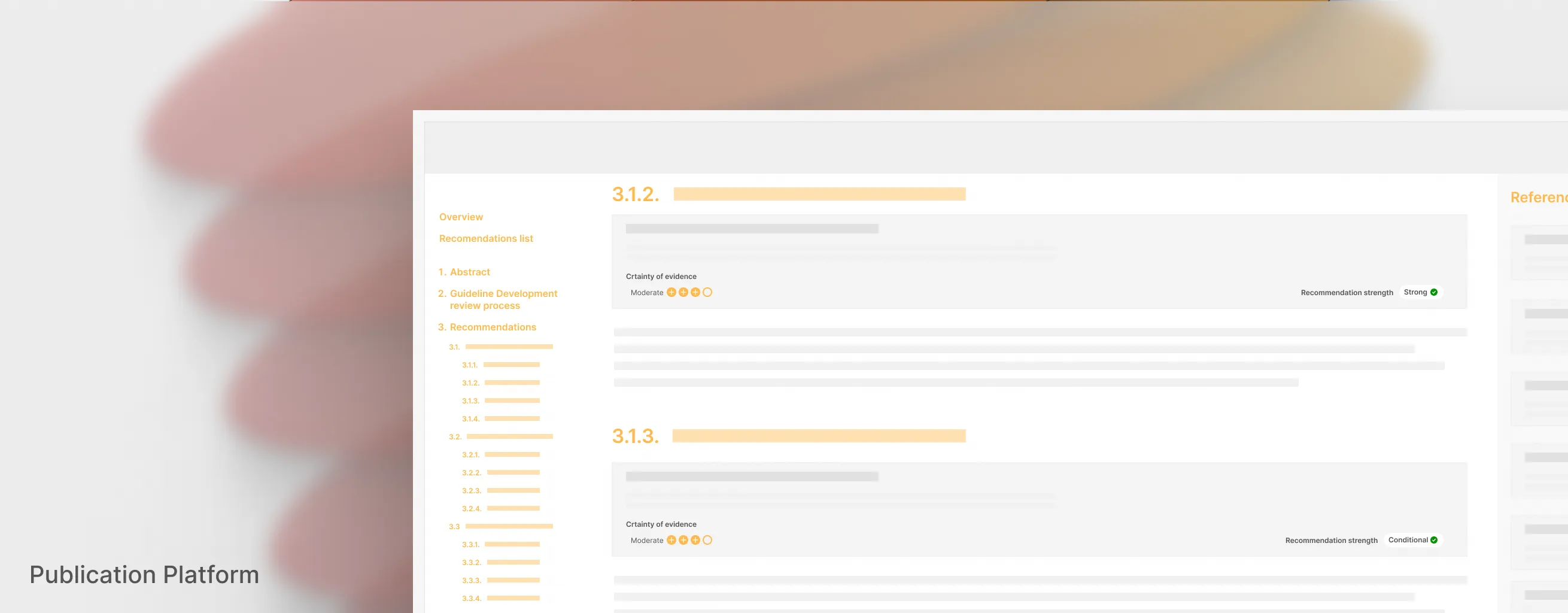
Oversight across projects and audiences
For department leaders, GRADEpro provides a clear view across multiple projects, helping to align development priorities with organizational strategy. At the same time, dissemination analytics such as downloads, visits, and engagement trends enable leaders to understand which guidelines resonate most with clinicians, where adoption is strong, and where gaps remain.
Secure and trusted infrastructure
GRADEpro is built on internationally recognized standards like SOC-2 and ISO 27001, ensuring that sensitive data is stored securely, backed up reliably, and protected against breaches. Department heads can be confident that guideline development and dissemination rest on a foundation of security and compliance, which is critical for maintaining credibility and trust.
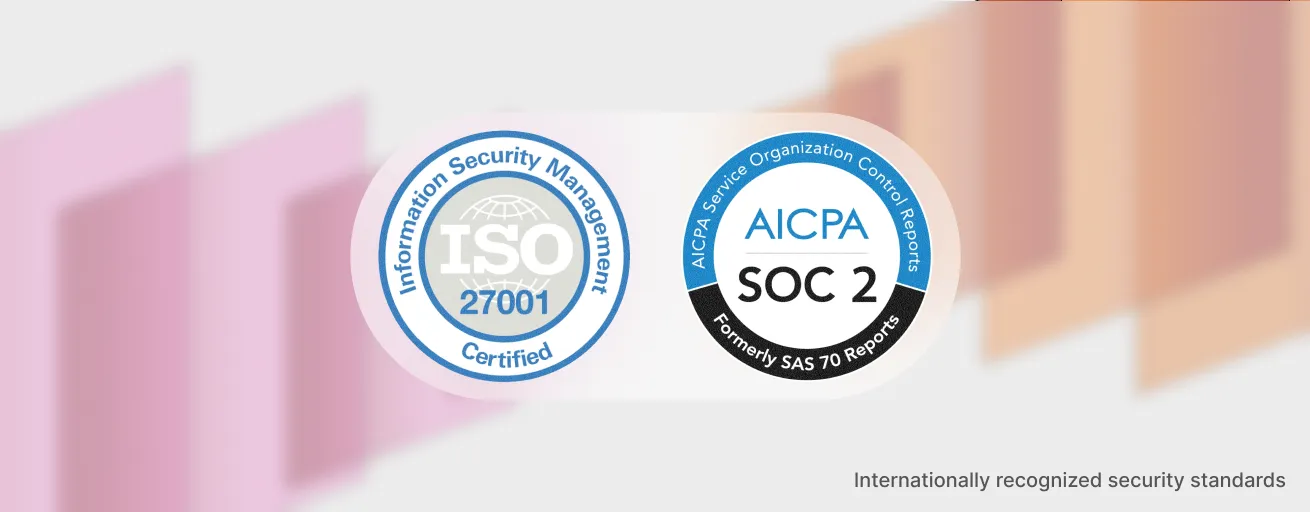
Generating
strategic insights
Beyond dissemination, GRADEpro provides usage insights that reveal patterns of guideline consumption across specialties, geographies, and subgroups. These insights help department leaders refine dissemination strategies, better understand member needs, and demonstrate value to sponsors or partners by highlighting how different clinical audiences engage with guidelines.
What is

GRADE is a methodology developed by the GRADE Working Group to assess the certainty of evidence and strength of recommendations in healthcare. It provides a transparent, systematic approach for moving from research evidence to clinical and policy recommendations. Today, it is used globally by organizations, guideline developers, and decision-makers to ensure consistency and trust in evidence-based decisions.
About GRADEpro
Comprehensive support
for users
Provides guidance and assistance at every stage, helping teams navigate guideline development with confidence.

Global
community
Over 150,000 Users worldwide
Committed to evidence-based medicine
GRADEpro is a product of Evidence Prime, which has a formalised status as a Research & Development Center.
Referenced in
research
Cited in over 1,400 publications, reflecting its influence and credibility in evidence-based healthcare.

Supports multiple
methodological approaches
Grounded in multiple internationally accepted methodologies like GRADE, ensuring transparency and rigor.



Try GRADEpro for your whole team
JOIN OVER 150,000 USERS WORLDWIDE
